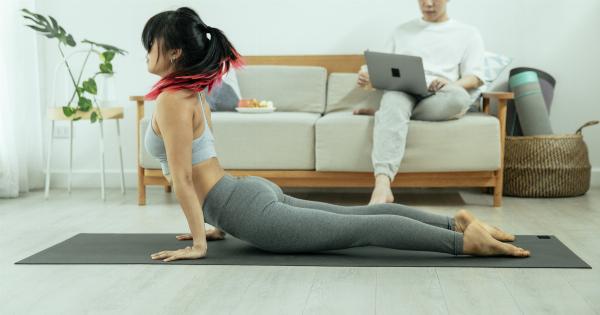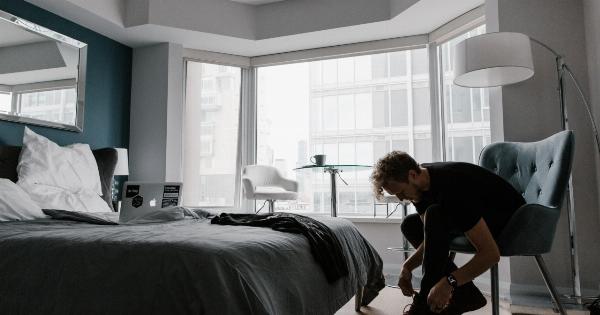It’s a struggle every morning – the alarm goes off and we hit snooze once, twice, maybe even three times before finally dragging ourselves out of bed.
Some people rely heavily on the snooze button to get through their mornings, while others can’t stand the thought of wasting valuable minutes in bed. But have you ever stopped to consider the impact that snooze button use might be having on your overall health? Here’s what the research says.
What is the Snooze Button?
Before we dive into the health effects of snooze button use, let’s define what we’re talking about.
The snooze button is a feature on most alarm clocks and smartphones that allows you to temporarily silence your alarm and delay waking up for a set amount of time, typically 5-10 minutes.
The Pros and Cons of Snooze Button Use
Like anything in life, there are pros and cons to using the snooze button. Here are a few of the most important:.
Pros
- You get a few extra minutes of sleep, which can be helpful if you’re feeling particularly tired or sleep-deprived.
- It allows you to ease into your day more slowly, rather than jumping out of bed and rushing around.
- If you’re the type of person who is prone to oversleeping, the snooze button can give you some peace of mind that you won’t sleep through your alarm entirely.
Cons
- When you hit snooze, your body isn’t actually getting any meaningful rest – you’re just delaying the inevitable.
- Repeated use of the snooze button can disrupt your sleep patterns and make it harder to wake up at all.
- If you hit snooze too many times, you run the risk of oversleeping and being late for work, school, or other commitments.
The Science of Sleep
In order to understand how snooze button use might be affecting our health, it’s important to understand a bit about how sleep works.
There are two main types of sleep: rapid eye movement (REM) sleep, which is when we dream, and non-REM sleep, which is divided into three stages. During non-REM sleep, our bodies restore and repair themselves, and memories are consolidated.
Each night, we cycle through these stages of sleep multiple times, with each cycle lasting roughly 90 minutes. It’s optimal to get 5-6 90-minute cycles of sleep per night in order to wake up feeling rested and refreshed.
When we disrupt this natural sleep cycle, either by hitting snooze or waking up at different times each day, we can experience a variety of negative health effects.
The Negative Health Effects of Snooze Button Use
So, what exactly happens to our bodies when we hit snooze?.
Disrupts Sleep Patterns
As mentioned above, hitting snooze can disrupt our natural sleep cycle. When we wake up and then immediately fall back asleep, our bodies don’t have time to enter a new sleep cycle before the alarm goes off again.
This can leave us feeling groggy, irritable, and less alert throughout the day.
Increases Stress Levels
When we hit snooze repeatedly, we’re essentially telling our bodies that we’re in a constant state of emergency.
The body’s stress response kicks in each time the alarm goes off, which can lead to an increase in stress hormones like cortisol. Over time, this can lead to chronic stress, which has been linked to a variety of health problems including heart disease, depression, and anxiety.
Reduces Quality of Sleep
While it may seem like hitting snooze is helping us get more sleep, it’s actually reducing the overall quality of our sleep.
As we discussed earlier, our bodies need to cycle through multiple stages of sleep in order to fully restore and repair themselves. When we disrupt these cycles, we’re not getting the same level of restorative sleep that we would if we woke up at the same time each day.
Leads to Fatigue
Perhaps the most obvious negative effect of snooze button use is that it can lead to feelings of fatigue throughout the day. When we hit snooze, we’re essentially telling our bodies that we’re not ready to wake up yet.
This can leave us feeling like we’re playing catch-up for the rest of the day, which can negatively impact our productivity, mood, and overall sense of well-being.
Tips for Breaking the Snooze Button Habit
If you’re a chronic snooze button user and want to break the habit, here are a few tips to help you get started:.
- Gradually adjust your wake-up time. Instead of trying to force yourself to wake up an hour earlier right away, try moving your wake-up time back in 15-minute increments each day until you’re waking up at your desired time.
- Create a morning routine that you look forward to. Whether it’s a cup of coffee, a few minutes of meditation, or some light stretching, having something to look forward to in the morning can make it easier to get out of bed.
- Avoid caffeine and electronic devices before bed. Both caffeine and the blue light emitted by smartphones and computers can disrupt our natural sleep cycle and make it harder to fall asleep at night.
- Try using a sunrise alarm clock. These devices mimic the natural light of the sun and gradually wake you up over a set period of time, which can make the waking-up process more gentle.
The Bottom Line
While it may be tempting to hit snooze a few extra times each morning, the negative health effects of doing so are clear.
By disrupting our natural sleep cycles and increasing our stress levels, snooze button use can lead to fatigue, irritability, and even chronic health problems over time. To prioritize your health and well-being, it’s best to establish a consistent sleep routine and avoid relying on the snooze button as much as possible.






























